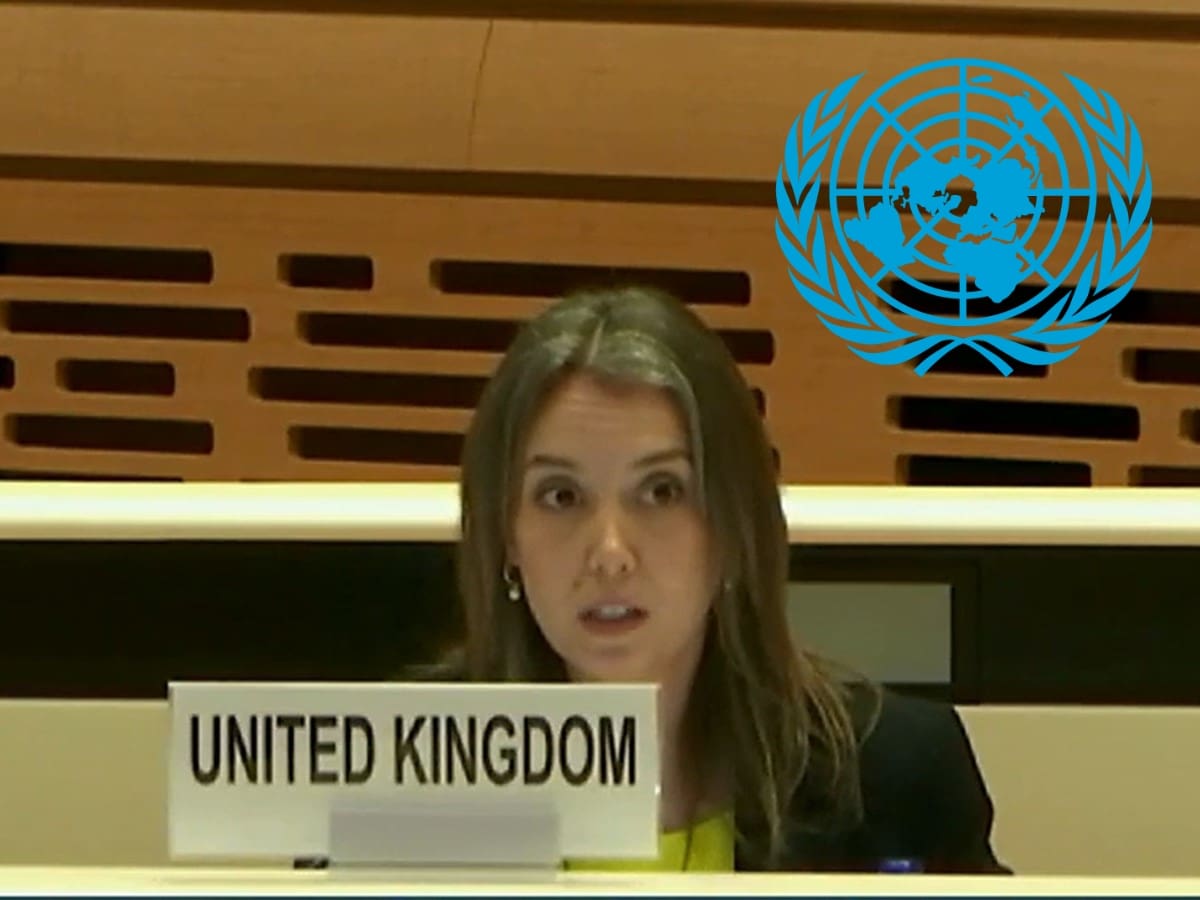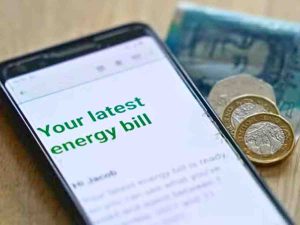The Tory government was hauled in front of the UN on Monday 18 March. It was for it to give evidence about how it maintains human rights for chronically ill and disabled people in the UK. Of course, the evidence it gave showed none of this. In response, the so-called UNCRPD accused the UK government of numerous violations; at worst – causing the deaths of disabled people via the benefits system.
Overall, the UK government’s representatives did little more than to display contempt for chronically ill and disabled people – lying, gaslighting, and misrepresenting their way through the 90-minute hearing.
The UNCRPD and the UK government
As the Canary has documented, the UNCRPD is a human rights branch of the UN. It oversees the Convention on the Rights of Persons with Disabilities (CRPD). The UK has signed up to this conventions. However, in 2016 the UNCRPD assessed how the country was sticking to the rules. It found that successive UK governments had committed “grave” and “systematic” violations of disabled people’s human rights.
Every so often, the UNCRPD monitors countries to see if they are acting in line with the CRPD’s articles or not. The last time the committee looked at the UK was in 2016 – and the report was damning. Then, in August 2017, the UNCRPD followed up on its report; this included its chair accusing the government of creating a “human catastrophe” for disabled people. Yet in 2018 the government effectively whitewashed the UNCRPD report.
Now, the committee is investigating the UK again.
As part of this process, Disabled People’s Organisations (DPOs) have come together to collate evidence. What they’ve found is damning. You can read the Canary‘s full analysis of the report here, but as one of its conclusions summed up:
There has been continued regression since the last public examination of the UK under the CRDP
With that in mind, the UNCRPD summoned the Tory government to Geneva – originally for 28 August 2023. However, ministers backed out of the meeting. Then, on Monday 18 March the Tories finally gave their evidence to the committee. Predictably, it was awash with lies and deceit.
Whitewashing its record at the UNCRPD
Deputy director of the Cabinet Office’s Disability Unit Alexandra Gowlland was giving evidence, along with civil servants from the Department for Work and Pensions (DWP), Department of Health and Social Care, the Scottish government, the Welsh government, and the Northern Ireland government.
Of course, it would have been too much to ask for the organ grinders in government to be sent – like DWP secretary of state Mel Stride. So, instead the Tories sent their monkeys out to make excuses for their human rights violations.
Overall, Gowlland claimed that the evidence she gave demonstrated the government “ongoing commitment to support disabled people” and “implement the CRPD”. However, even the evidence they gave exposed this as not being true.
She spoke of the new Disability Strategy – one that DPOs had no input into whatsoever. It was criticised by MPs, at first declared unlawful by the High Court, and overall slammed by DPOs.
Gowlland also mentioned the 12-month Disability Action Plan – again which was heavily criticised by DPOs. As John Pring at Disability News Service (DNS) reported:
dismissed the government’s new Disability Action Plan as a series of “empty promises” that fail to address the “dire situation” disabled people are facing.
Yet Gowlland had the gall to “thank” disabled people, DPOs, and charities for their input into this sham.
Manipulating figures
Meanwhile, she went on to talk about a “key priority” of the government being to reduce the “disability employment gap”. Gowlland claimed the government had met its goals. However, in reality the actual figure as a percentage has remained static.
The government has manipulated the figures – because the only reason the number of disabled people in employment has increased is because the number of disabled people has increased, partly due to the coronavirus pandemic.
On benefits, Gowlland claimed that the government is committed the “transforming the benefits system” by:
- ‘Focusing on what disabled people can do, not what they can’t’.
- “Stepping up employment support”.
- Ensuring disabled people can “access the right support [from the DWP] at the right time”.
As the Canary has documented for years, none of this is true – a fact that shouldn’t even need stating.
Gowlland also said adult social care “remained at the heart of government reform plans” – as did supported housing. However, the latter was nonsense. For example, the government’s own figures show that just 10% of new build housing is properly accessible.
Fomenting hate crime, not reducing it
Gowlland also had the cheek to say that the government found disability hate crime “unacceptable”, and had taken measures to reduce it. This ignores the UNCRPD’s 2018 warning that the government ITSELF was driving this. The committee’s then-chair, as the Canary previously reported:
said that the government and the media “have some responsibility” for society seeing disabled people as “parasites, living on social benefits… and [living on] the taxes of other people”. And she said these “very, very dangerous” attitudes could “lead to violence… and if not, to killings and euthanasia”. And she urged the government to “stop” this
Moreover, disability hate crime has risen by around 50% in the last four years. So, whatever the Tories claim they’re doing is not working.
She waxed lyrical about what the government had done for Special Educational Needs and Disabilities (SEND) provision- saying its plans would give children and families “greater confidence” that they’ll be able to “fulfil their potential”.
This ignored the fact that under the Tories, SEND funding is having to either a) come out of existing Department for Education (DfE) money, or b) might not actually exist and has already been “raided” for other areas.
So, what did the committee have to say about the UK government’s evidence?
UNCRPD: slamming the government
UNCRPD member Rosemary Kayess responded to the government. She said:
International Human Rights law is based on the inherent dignity and worth of the human person. That we are all equal… The UK has agreed to be bound by these principles and norms… Since 2017, we find evidence of regression in the standards and principles of the CRPD.
We see a reform agenda that is framed in a political narrative that demonises disabled people including proposals to cut disability benefits to reward working people… that tells disabled people that they are underserving citizens… coupled with an onerous and complex social benefits system that is the basis for trauma and preventable mental distress.
She listed a damning hit-list of the government’s misdemeanours since 2017. These included:
- Court cases against government policies – where courts rules against the government.
- Increasing rates of institutionalisation of disabled people – including in secure mental health facilities, hospitals, and being housebound – due to inadequate government support.
- Use of restraints, restrictive practices, and coercion, in institutional settings.
- Unsafe, inaccessible housing – or homeless disabled people.
- The Work Capability Assessment (WCA) being “onerous”, not being “trauma informed”, using “inexperienced” and “unqualified” assessors, and it not taking into account disabled people’s “specific circumstances”.
- The government putting in place “pervasive” frameworks that “undermine disabled people”, “devalues” them, that paint them as “underserving”, “skiving off”, and “defrauding the system” – which has all resulted in hate crime.
Policies resulting in “deaths” and “suicide”
Professor Laverne Jacobs then added:
[The committee has heard] disabled people facing intolerable situations, even, death, while trying to comply with the eligibility requirements of the UK government’s benefits regimes, work capability assessments, and programmes administering support… What we have heard suggest a significant and shameful gap between the [CRPD] requirements and the lived experience of disabled people.
Jacobs also fired criticisms at the UK government. These included:
- Whether policies implemented, including adequate standards of living, met the CRPD.
- Lived experience of disabled people is running contrary to their rights.
- The amounts of benefits are “insufficient”, and too many disabled people are living in poverty.
- Repeated patterns of disabled people taking their own lives due to the benefits system.
- The benefit assessment process causing people to have mental health crises.
Gowlland’s response to all this was disgraceful.
Lies, gaslighting, ignorance, and whitewashing
She said:
We are fully committed to the UNCPRD, a convention that the UK government was actively involved in developing and that we ratified in 2009…
This is laughable – as all the evidence to this point had shown. Gowlland then went on to broadcast a combination of rhetoric, soundbites, and wordsoup. She failed to address any of the points Kayess or Jacobs raised in terms of the benefits system, deaths on its watch, nor the inadequacy of it.
Other civil servants also spoke – and equally failed to address any of the UNCRPD’s most serious points. One mentioned the cost of living payments – gaslighting everyone who has experienced the reality of them not being enough.
Perhaps most shockingly, one civil servant called the government’s systematic persecution of chronically ill and disabled people – which has directly led to tens of thousands of deaths – as it being:
committed to improving the lives of disabled people and… delivering the most ambitious disability reform agenda in a generation.
It is hard to overstate just how despicable this is. The UK government civil servant’s words come just months after an inquiry found that the DWP was wrong to stop claimant Errol Graham’s benefits – because it led him to starve to death. It was these previous ‘reforms’ which led to Errol dying.
The darkest corners of the UK government
Overall, Gowlland and the UK government’s representation of itself was a disgrace. It is highly likely – in fact, almost a certainty – that the Tories will continue to downplay whitewash its appalling record on the rights of chronically ill and disabled people.
Moreover, the UK’s opposition Labour Party – likely to be elected to government this year – is following a similar path to the incumbents; pledging to clamp-down on people reliant on social security.
Plus, the UNCRPD’s hands are effectively tied. There is no legal recourse for it to take action against the UK government over the violations.
However, on the basis of this meeting, it seems the UNCRPD is preparing to issue a similar report to 2016’s “grave” and “systematic” violations verdict.
Jacobs summed the situation up, saying:
Light needs to be shone on the dark corners of public administration in order for justice to be done.
Light was certainly shone on 18 March. Now, we wait to see if justice will indeed be done.
Featured image via UN Web TV




